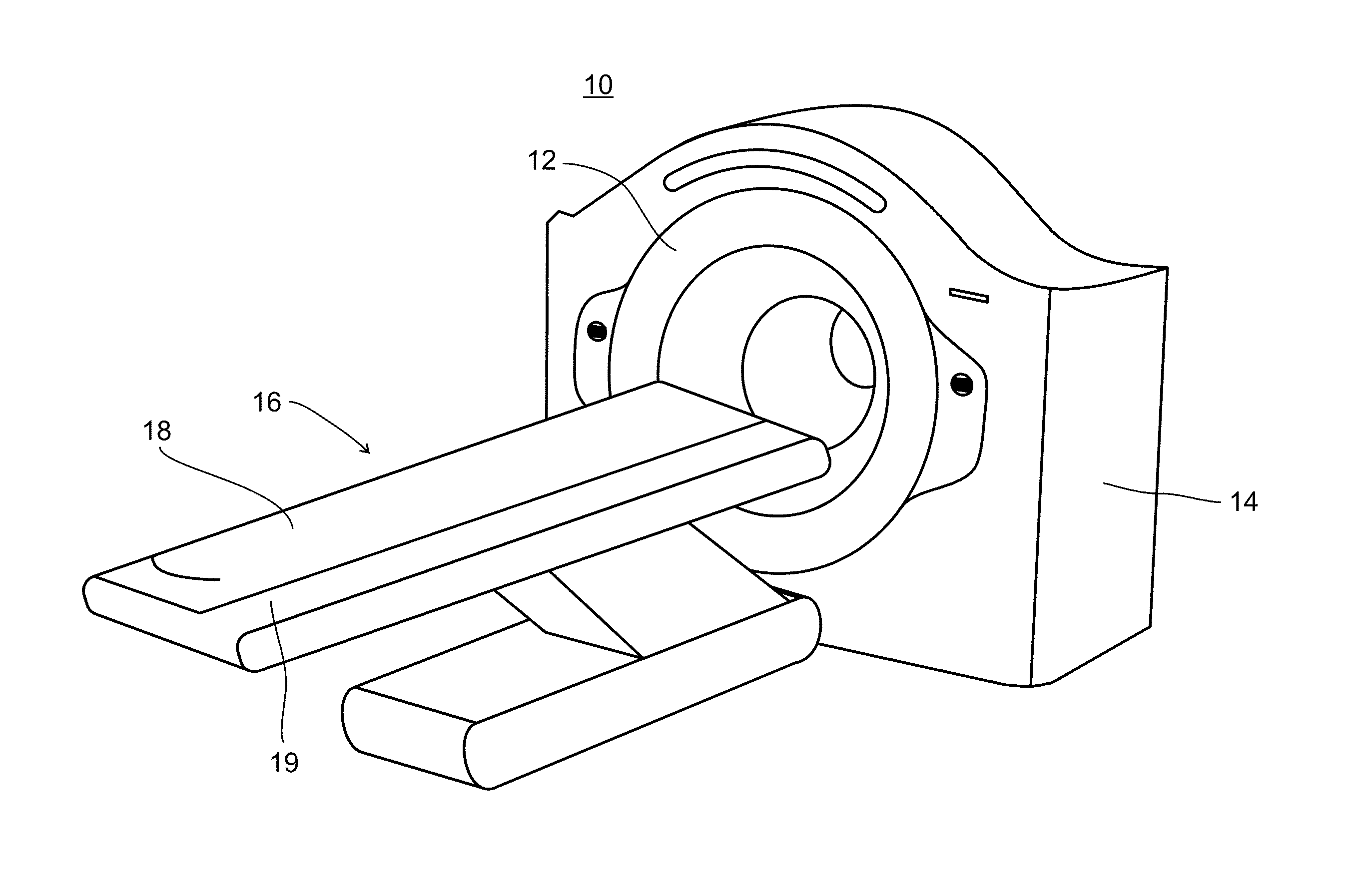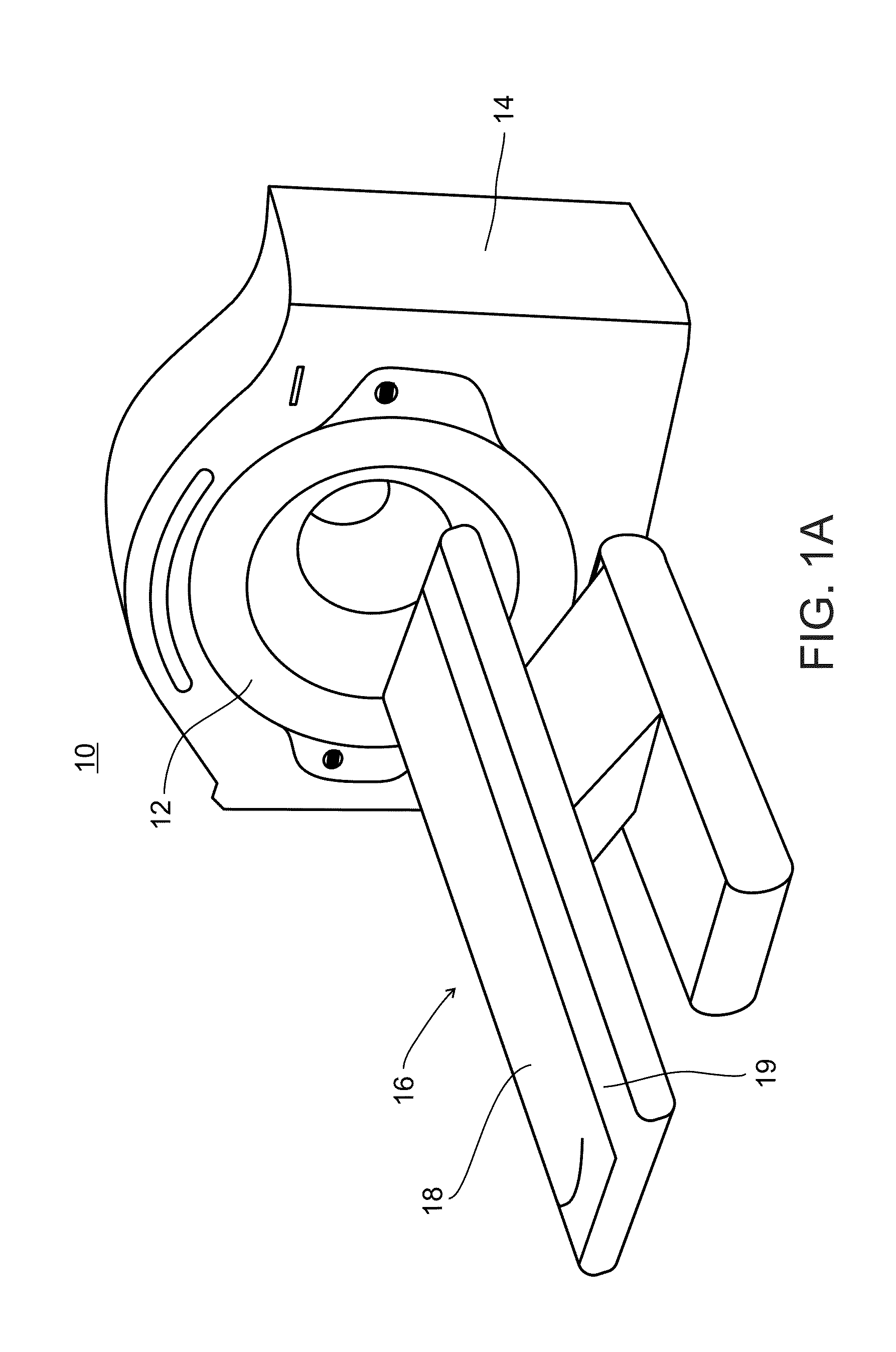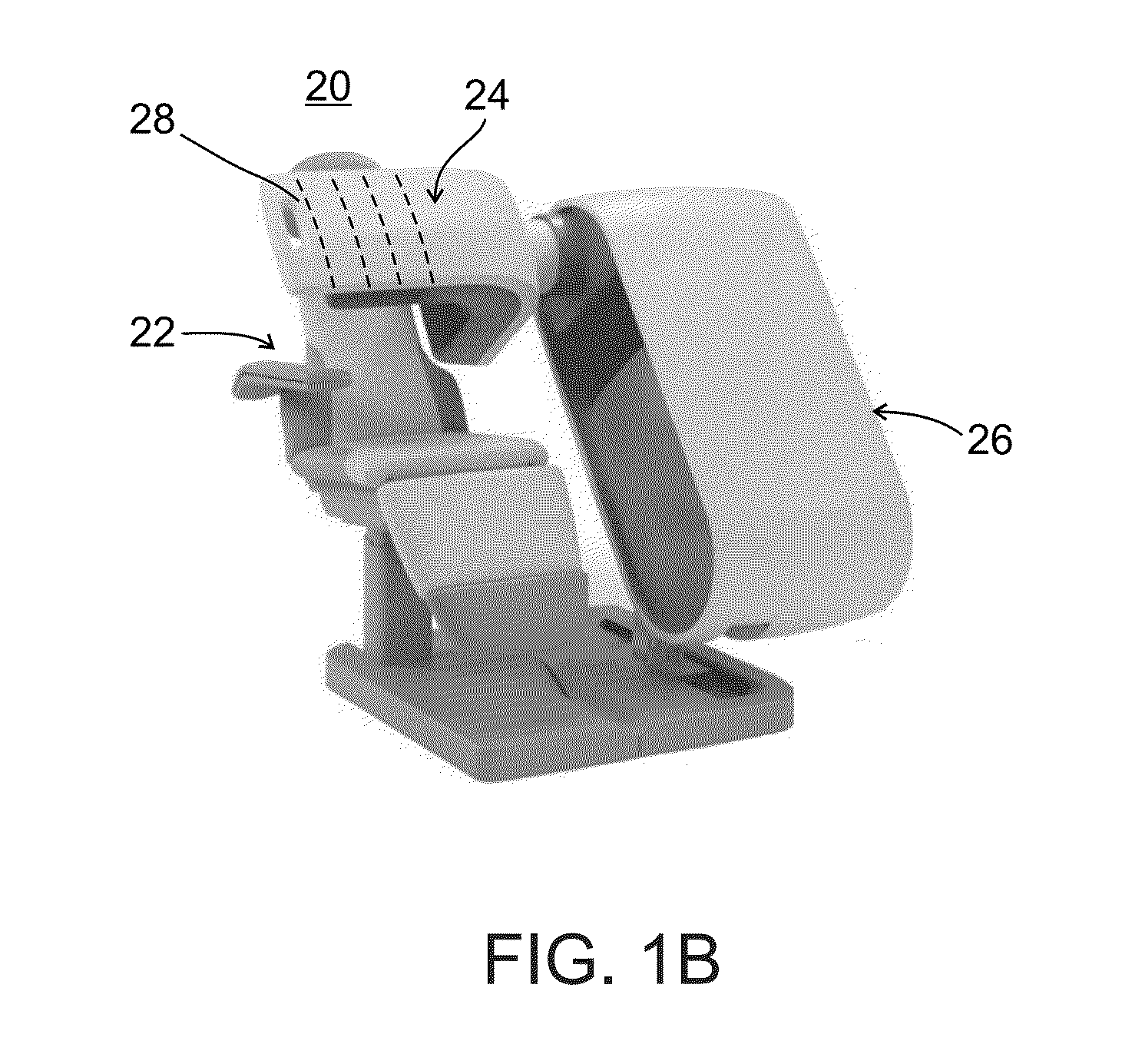Nuclear medicine tomography systems, detectors and methods
a tomography system and detector technology, applied in the field of nuclear medicine, can solve the problems of reducing affecting the scan time, and weighing hundreds of kilograms of the gantry including the positioning mechanism of the detector head, so as to reduce the spatial resolution of the detector unit
- Summary
- Abstract
- Description
- Claims
- Application Information
AI Technical Summary
Benefits of technology
Problems solved by technology
Method used
Image
Examples
example
[0500]FIGS. 23A-23C illustrate qualitatively the result of a simulation study performed on an exemplary collimated detector as described herein formed of 0.2 mm tungsten septa. In FIG. 23A, the horizontal axis represents ±θ, the angle between an approach path 2302 from an emission event 2303 off the centerline 2304 of a collimator cell 2306 (see FIG. 23B), two curves are shown: curve 2308 for a typical SPECT isotope, and 2310 for a typical PET isotope. As may be seen, SPECT performance is very directional, but for small values of θ, PET performance is comparable.
[0501]However, for PET isotopes, off-axis detection is reduced, but not by so much as to prevent use of collimated detectors according to some embodiments hereof for selectable or simultaneous SPECT and PET imaging.
[0502]FIG. 23C provides an understanding of the saw-tooth shape of the off axis detection probability for PET imaging. Here, it may be seen that the path 2310 for an emission event at some off-axis position 2308 m...
PUM
 Login to View More
Login to View More Abstract
Description
Claims
Application Information
 Login to View More
Login to View More - R&D
- Intellectual Property
- Life Sciences
- Materials
- Tech Scout
- Unparalleled Data Quality
- Higher Quality Content
- 60% Fewer Hallucinations
Browse by: Latest US Patents, China's latest patents, Technical Efficacy Thesaurus, Application Domain, Technology Topic, Popular Technical Reports.
© 2025 PatSnap. All rights reserved.Legal|Privacy policy|Modern Slavery Act Transparency Statement|Sitemap|About US| Contact US: help@patsnap.com



